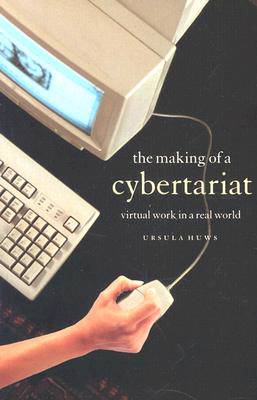
- Afhalen na 1 uur in een winkel met voorraad
- Gratis thuislevering in België vanaf € 30
- Ruim aanbod met 7 miljoen producten
- Afhalen na 1 uur in een winkel met voorraad
- Gratis thuislevering in België vanaf € 30
- Ruim aanbod met 7 miljoen producten
Omschrijving
The workplace has been changed in recent decades by the rise of digital technologies. Parts of a single labor process can be moved around the world, with implications not only for individual workplaces, but for the working class as a whole.
Within advanced capitalist countries, the workplace has been made more flexible through cell phones, e-mail, freelancing, and outsourcing. The process often makes the situation of the workers more precarious, as they are forced to pay for the tools of their trade, are expected to be constantly accessible to workplace demands, and are isolated from their fellow workers.
Huws' The Making of a Cybertariat examines this process from a number of perspectives, including those of women in the workplace and at home. It explores changing categories of employment and modes of organization, and how new divisions of race and gender are created in the process. It questions how the virtual workforce can identify their common interests and stand together to struggle for them.
The Making of a Cybertariat is both a testament to the author's remarkable record in the politics of technology over several decades and a vital resource for grasping ongoing debates and controversies in this field.
Specificaties
Betrokkenen
- Auteur(s):
- Uitgeverij:
Inhoud
- Aantal bladzijden:
- 208
- Taal:
- Engels
Eigenschappen
- Productcode (EAN):
- 9781583670880
- Verschijningsdatum:
- 1/07/2003
- Uitvoering:
- Paperback
- Formaat:
- Trade paperback (VS)
- Afmetingen:
- 135 mm x 202 mm
- Gewicht:
- 226 g

Alleen bij Standaard Boekhandel
Beoordelingen
We publiceren alleen reviews die voldoen aan de voorwaarden voor reviews. Bekijk onze voorwaarden voor reviews.









